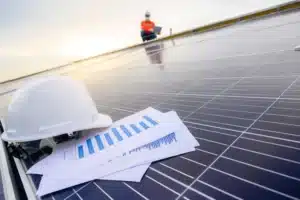

In an era of heightened environmental awareness and sustainable business practices, environmental due diligence has become a crucial aspect of any major business transaction. Whether you’re acquiring a property, merging with another company, or seeking investment, assessing the environmental risks and opportunities associated with your endeavor is essential.
This blog explores the concept of environmental due diligence, its significance, and how it can help protect both your investments and the environment.
Understanding Environmental Due Diligence
Environmental due diligence refers to the process of evaluating the environmental risks and liabilities associated with a property, business, or investment. It is typically conducted before a significant transaction, such as a merger, acquisition, or real estate purchase, to assess the potential environmental impact and compliance with environmental regulations.

The primary objectives of environmental due diligence are to:
- Identify potential environmental liabilities.
- Assess compliance with environmental laws and regulations.
- Determine the impact of environmental issues on the transaction’s financial and operational aspects.
- Develop strategies to manage and mitigate identified risks.
Why Environmental Due Diligence Matters
- Legal Compliance: Environmental due diligence ensures that the entity involved in a transaction is aware of and complies with all environmental regulations. Failing to comply with these regulations can result in costly fines, legal actions, and a tarnished reputation.
- Financial Protection: Identifying and addressing environmental issues early in the due diligence process can help avoid unexpected expenses and liabilities that may arise later, protecting your investment and bottom line.
- Reputation and Brand Image: In an age of growing environmental consciousness, companies with a strong commitment to sustainability and responsible business practices are more attractive to consumers, investors, and partners. Failing to conduct due diligence can lead to negative publicity and reputational damage.
- Environmental Stewardship: By conducting environmental due diligence, property owners can actively contribute to environmental protection. Identifying and addressing potential environmental issues can result in cleaner operations and better environmental practices as a “good neighbor” to the local community.
The Environmental Due Diligence Process
Environmental due diligence involves a comprehensive process that may include the following steps:
- Phase I Environmental Site Assessment: This is an initial assessment that involves a review of historical and current records, site visits, interviews, and an evaluation of the property’s environmental history. It helps identify potential environmental issues.
- Phase II Environmental Site Assessment: If the Phase I assessment identifies concerns, a Phase II assessment involves physical testing and sampling to confirm the presence of contamination or environmental issues.
- Regulatory Compliance Review: A thorough review of permits, licenses, and compliance records is conducted to ensure that the entity is adhering to all applicable environmental regulations.
- Risk Assessment and Mitigation Planning: Once environmental issues are identified, a risk assessment is conducted, and strategies are developed to mitigate these risks, which may include remediation efforts, insurance, or contractual negotiations.
- Disclosure: Transparent and timely communication of findings is crucial to the success of environmental due diligence,especially when associated with the approval of real estate transactions or funding for improvements. All parties involved in the transaction should be informed of the assessment results.
Conclusion
Environmental due diligence is a vital process that helps protect the owner’s investments and reputation, with the added benefit of improving the environment. By proactively identifying and addressing environmental risks and liabilities, companies can ensure compliance with regulations, reduce financial and legal risks, and demonstrate their commitment to environmental stewardship. As the world continues to prioritize sustainability and responsible business practices, environmental due diligence has become an indispensable tool for success in the modern business and regulatory landscape.
At Carroll Engineering, we provide environmental services to various market sectors , services such as Community and Non-community Water Systems,Sanitary Sewer Collection Systems, Treatment Plants, and On-Lot Disposal, Geological, Hydrogeological, Geotechnical and Soils, Real Estate Due Diligence and Site Investigation, Remedial Design, and Remedial Action Administration. For more information or any questions , please contact Paul Spilman, P.G. at pspilman@carrollengineering.com or (215) 343-5700 ext. 367.

